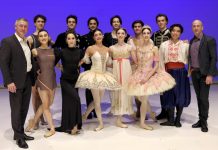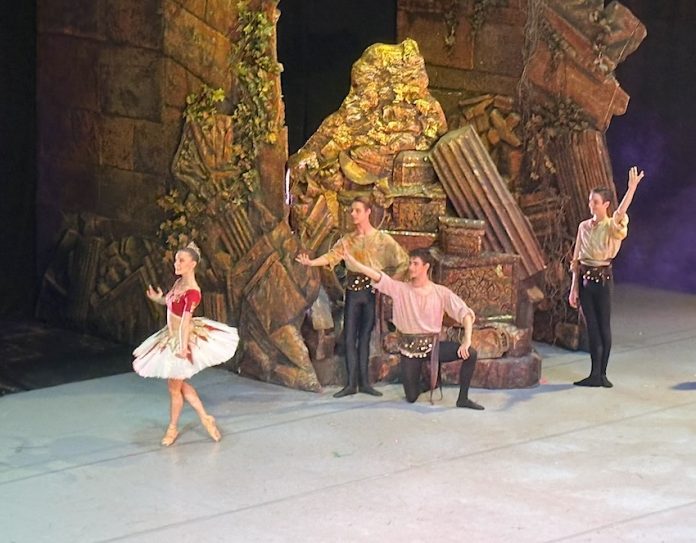“You cannot hold their hands forever. But if you have taught them well, they will know how to fly” – Maurice Béjart
Edited by Anna Popper
In 2025, the Hungarian Dance University – HDU (Magyar Táncművészeti Egyetem – MTE) celebrates its 75th anniversary. Founded in 1950 as the State Ballet Institute, the institution became a college in 1983 and was granted university status in 2017. Today, MTE stands as a pillar of Hungary’s higher education system, committed to nurturing the next generation of exceptional dance artists.
Among the numerous events marking this important milestone, the Ballet Graduation Performance on 29 June at the Hungarian State Opera emerged as a defining highlight.
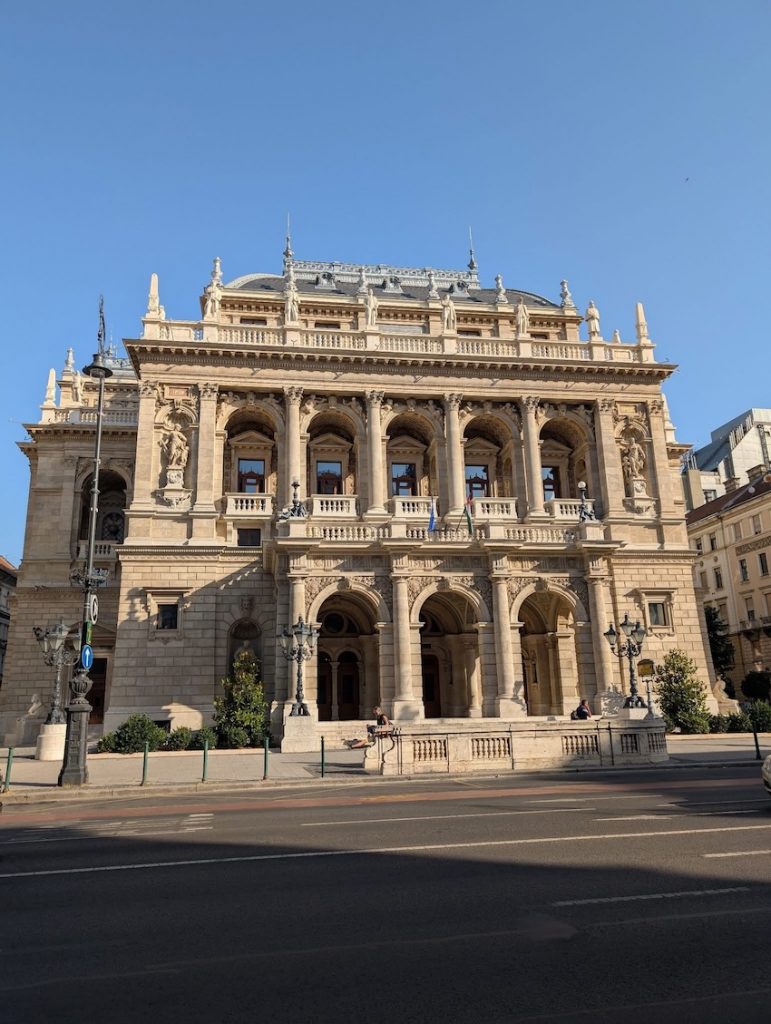
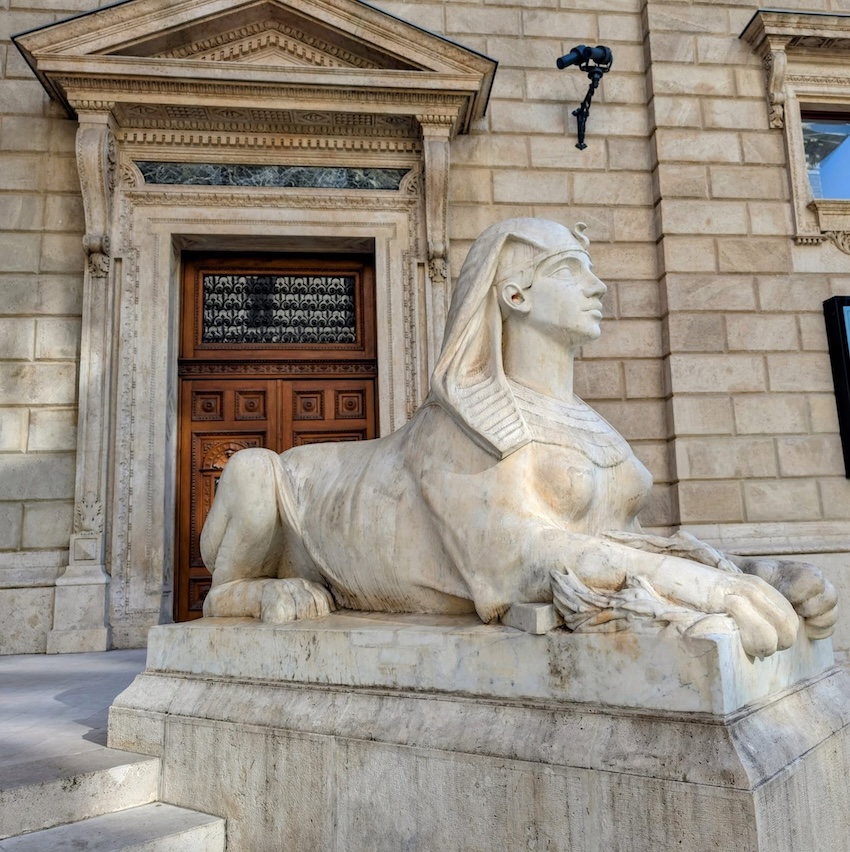
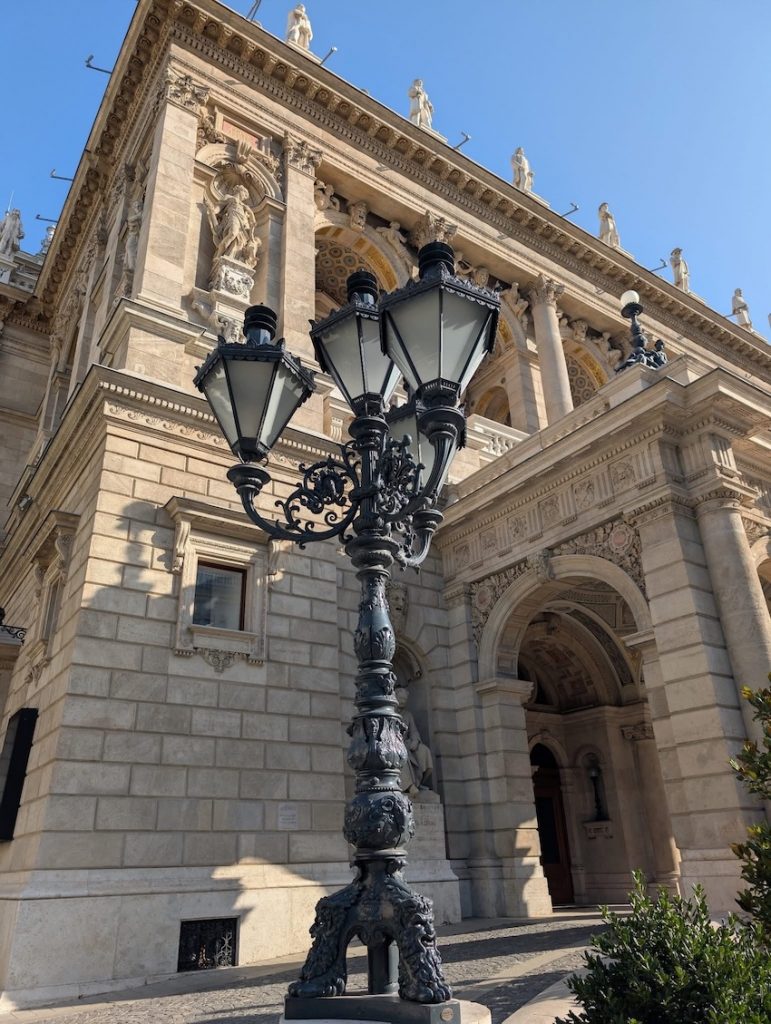
For the graduating students of the Classical Ballet Department, the performance was not only an academic examination but also the culmination of nine years of rigorous training, personal growth, and artistic transformation.
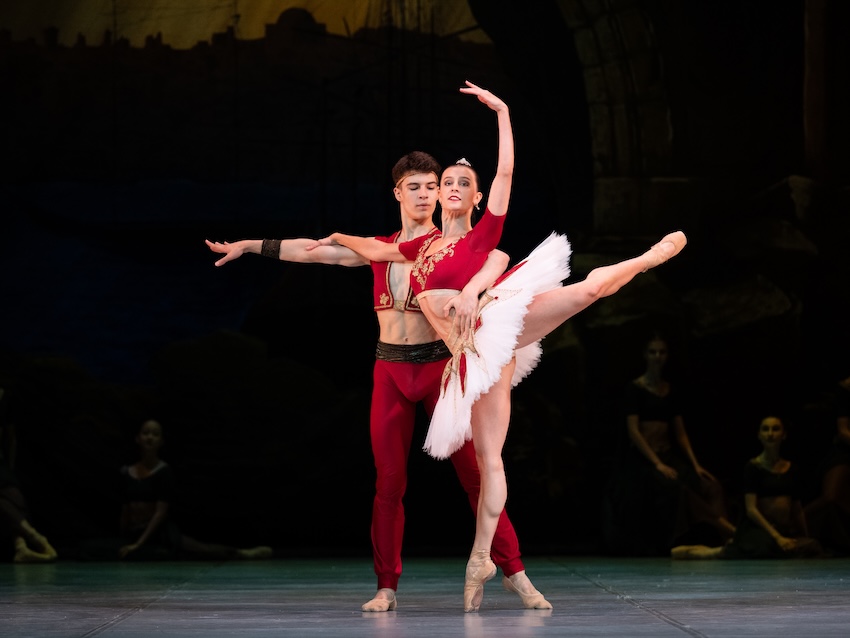
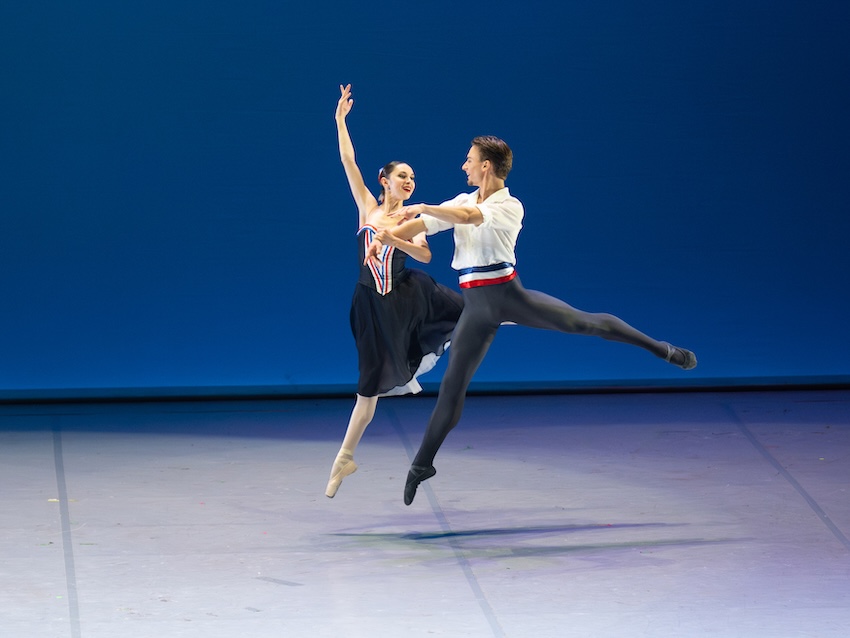
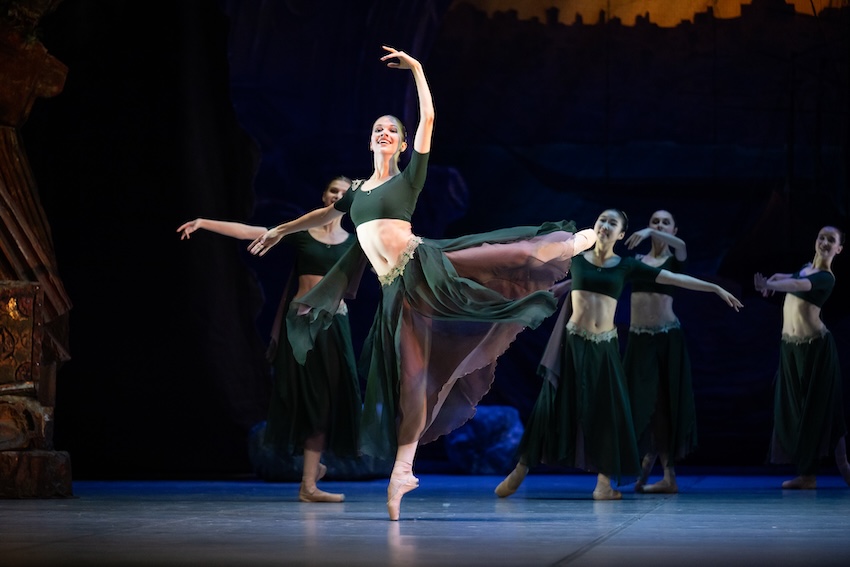
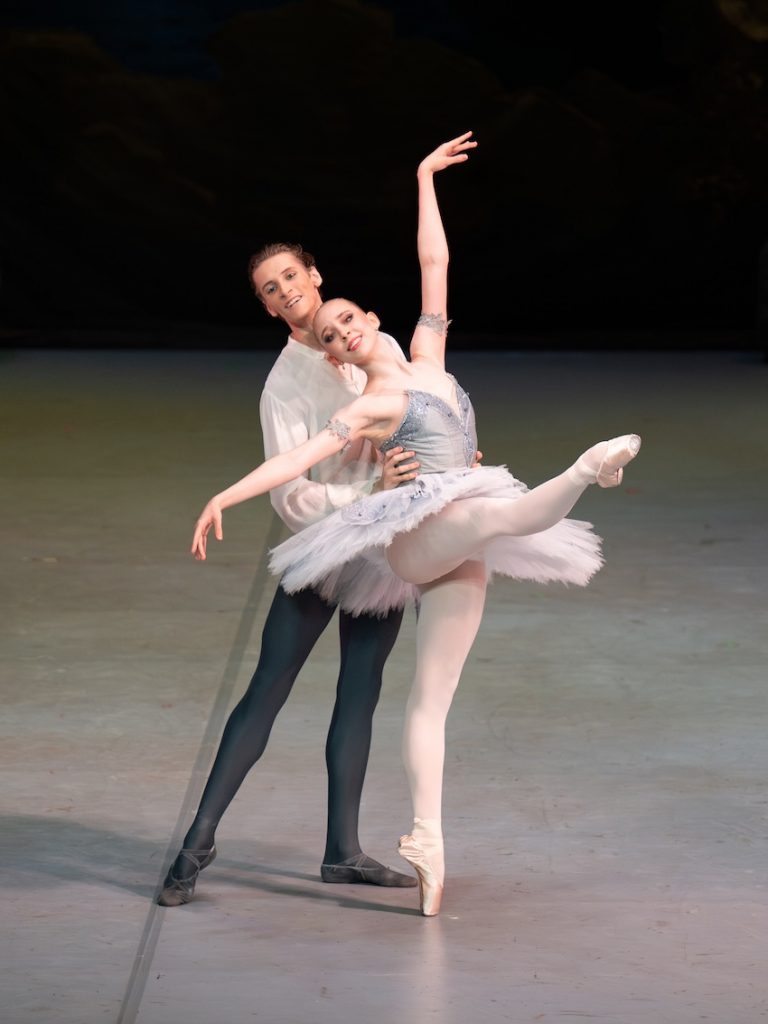
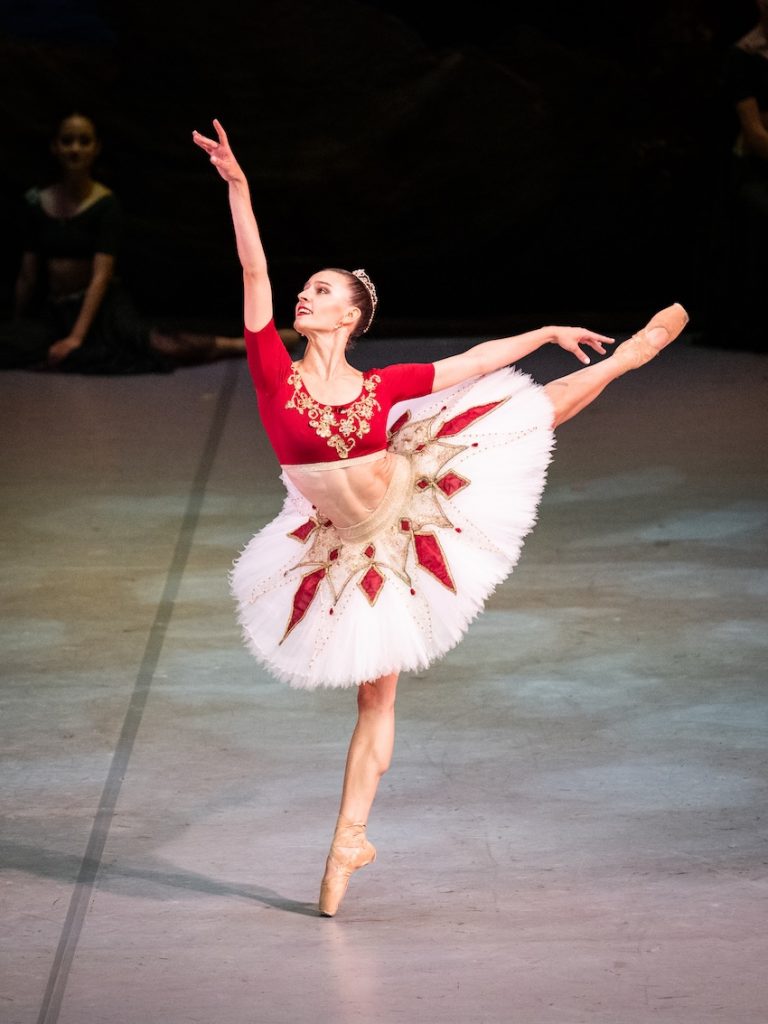
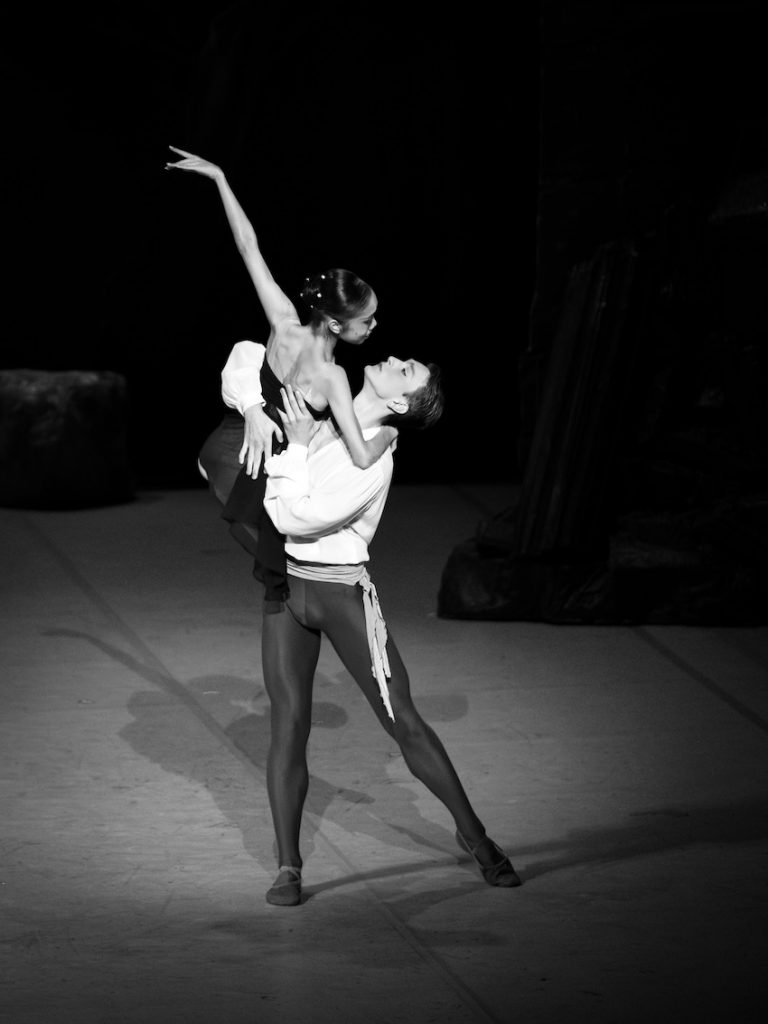
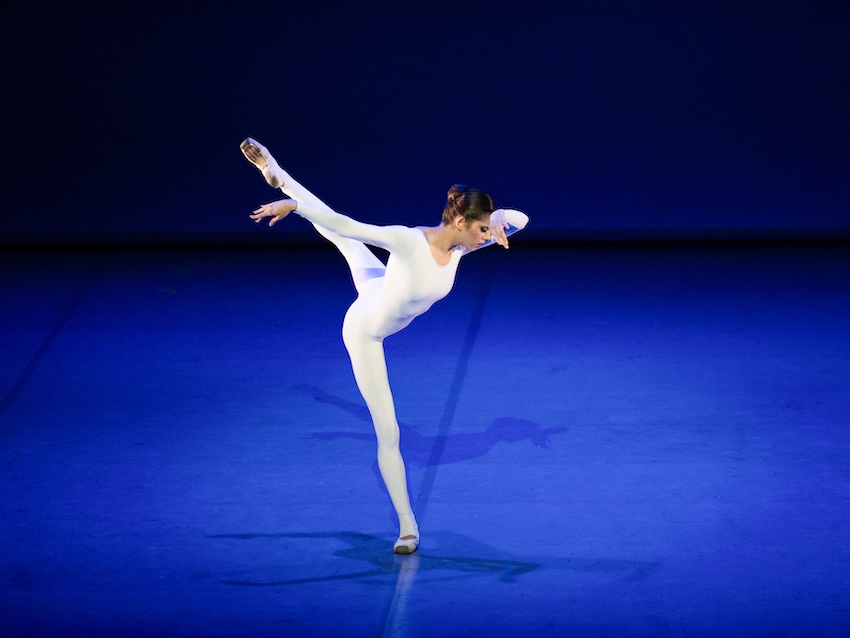
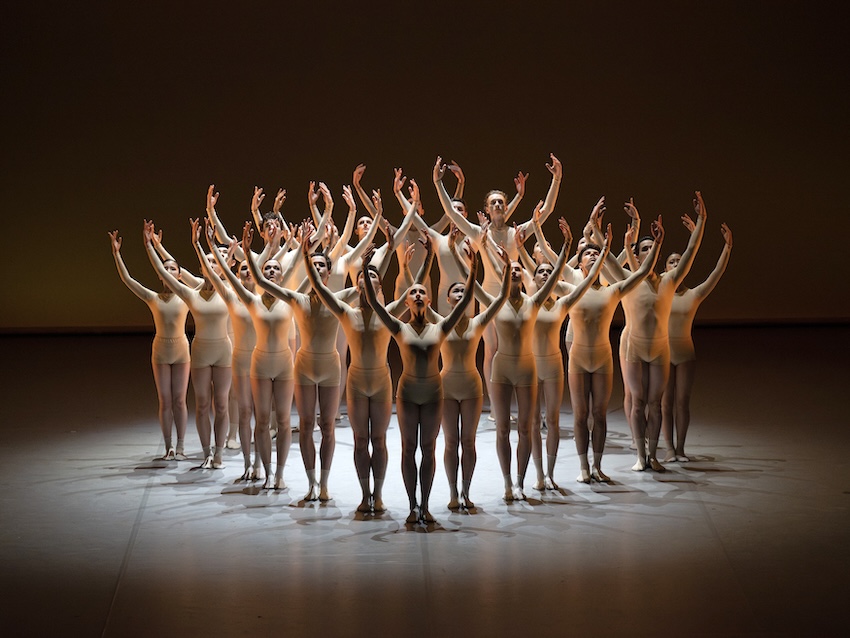
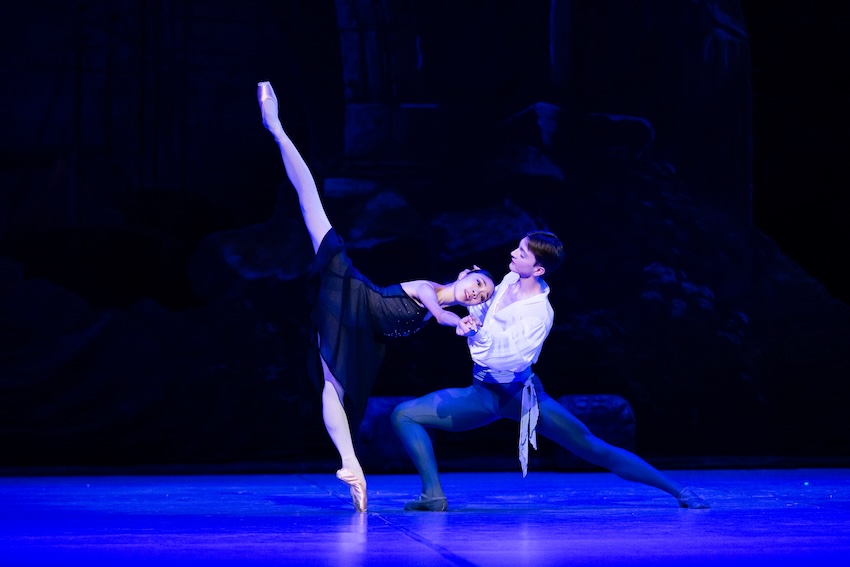
In the recently renovated neo-Renaissance Opera House – originally opened in 1884 and restored to its historical grandeur in 2022 – the evening became a celebration of movement, mastery and memory. A full house of family members, dance professionals, and enthusiastic supporters filled the auditorium.
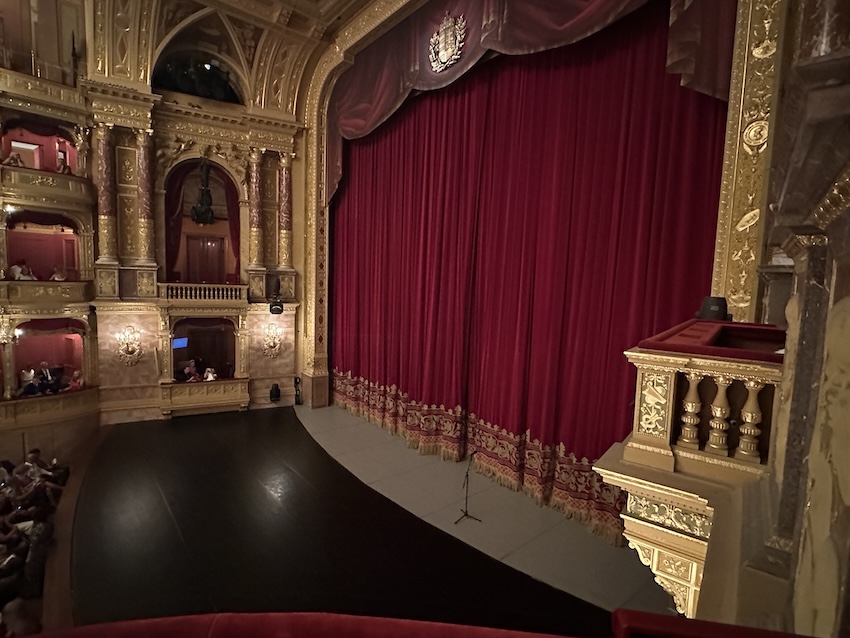
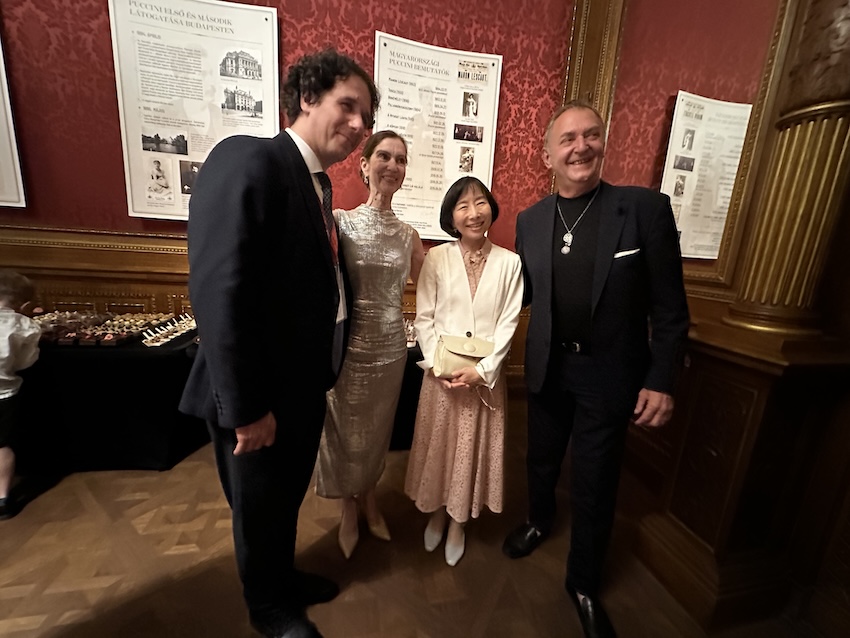
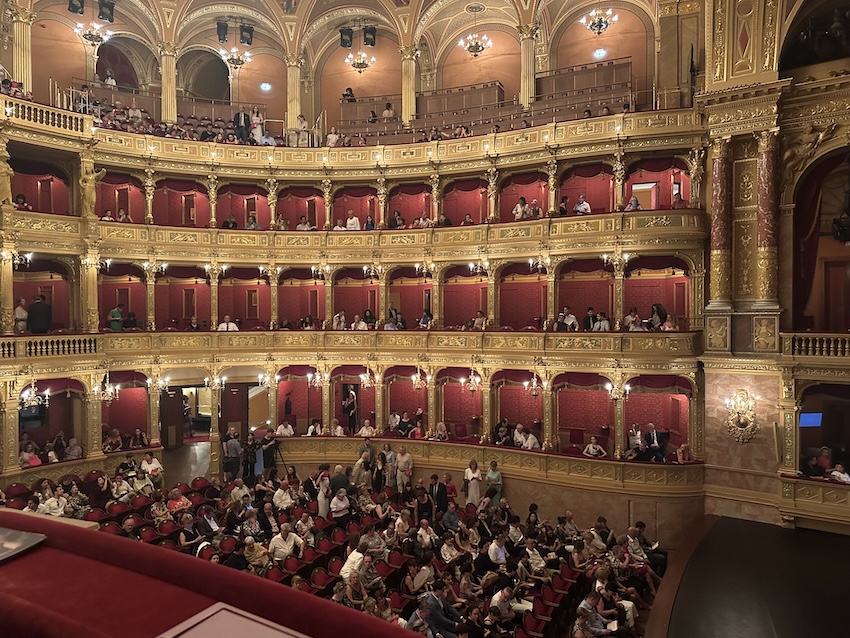
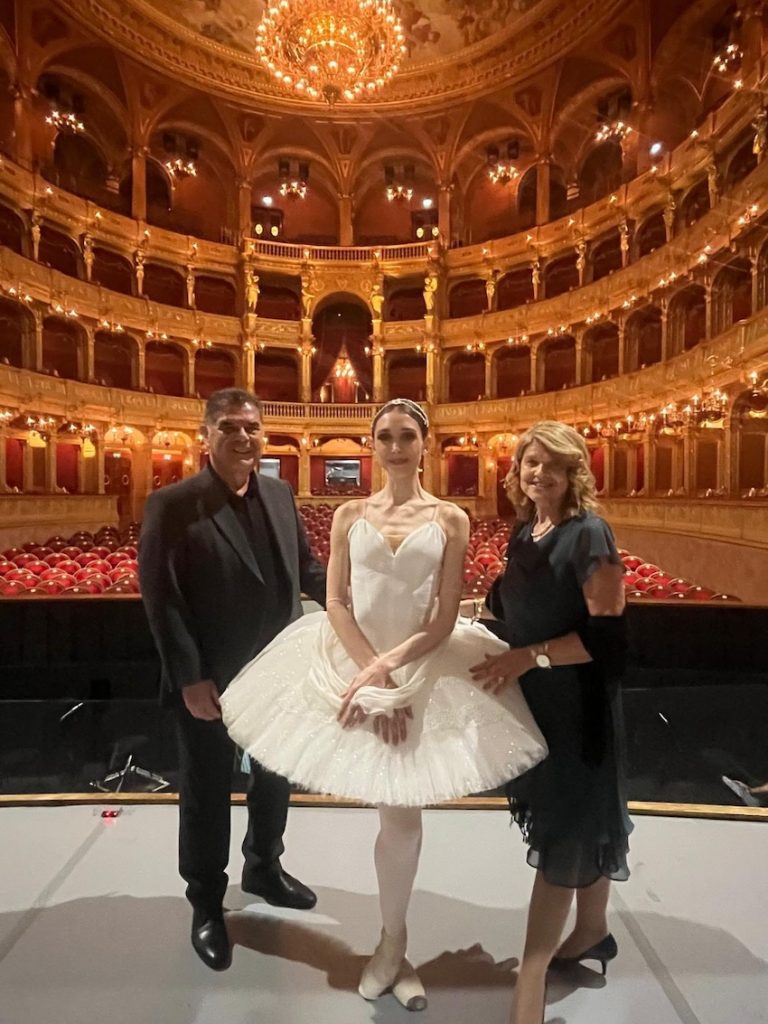
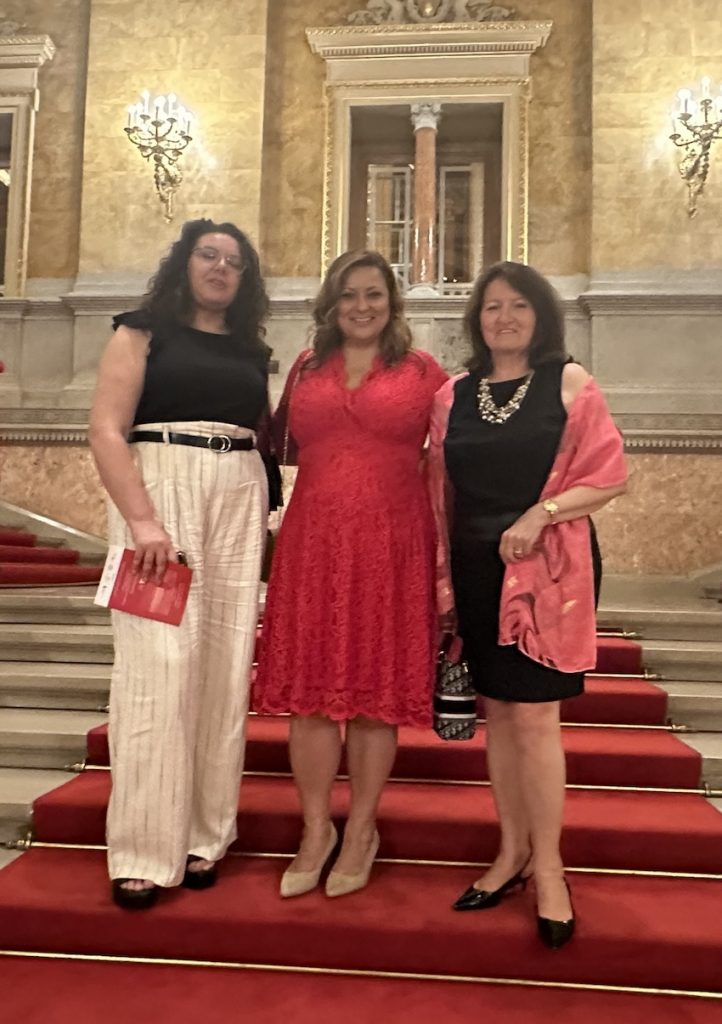
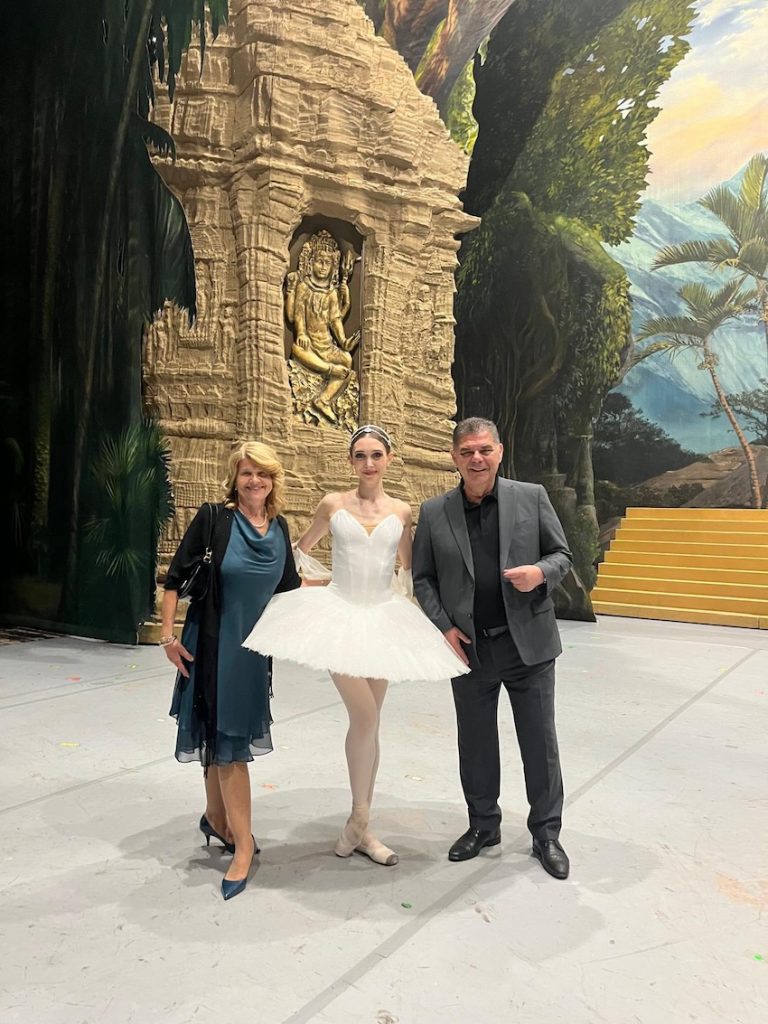
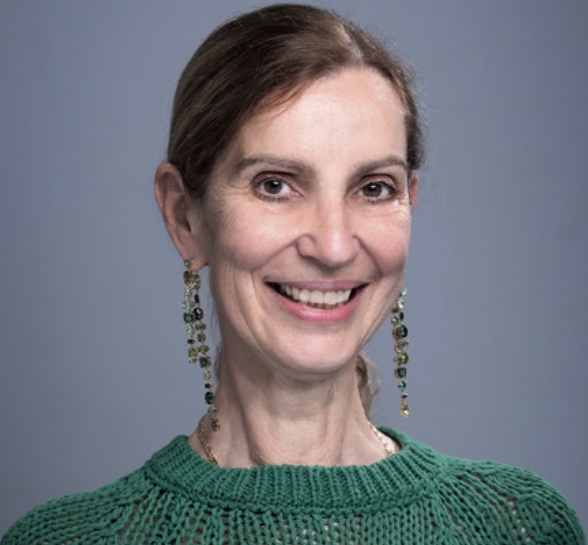
Before the curtain rose, MTE Rector Dr. Márta Fodorné Molnár welcomed the audience with heartfelt remarks, praising the accomplishments of the graduating students: “The Hungarian Dance University, celebrating its 75th anniversary, offers a remarkably broad spectrum of education in the fields of dance art, dance pedagogy, and dance science, currently providing training in seven majors and twenty-three specialisations. One of the most important tasks for our institution is to preserve its unique identity and traditional values while adapting to new circumstances and opportunities – keeping pace with the times and meeting the expectations of the 21st century, by serving them without becoming subservient to them.
This evening, we are invited to admire the examination performance of graduating students from the classical ballet specialisation of the dance artist major – young artists who are just beginning to spread their wings.
They will showcase the results of nine years of diverse, determined, and persistent work. Upon completing their studies, these young dancers will face vast opportunities in the professional world, as they have mastered not only classical ballet – their core subject – at a high level, but also many other movement languages of dance art. This is of great importance, since the repertoires of the world’s leading opera houses as well as smaller ensembles include not only classical ballets, but also neoclassical and modern works, along with contemporary pieces that represent the latest trends. Our students must be prepared to meet these expectations.”
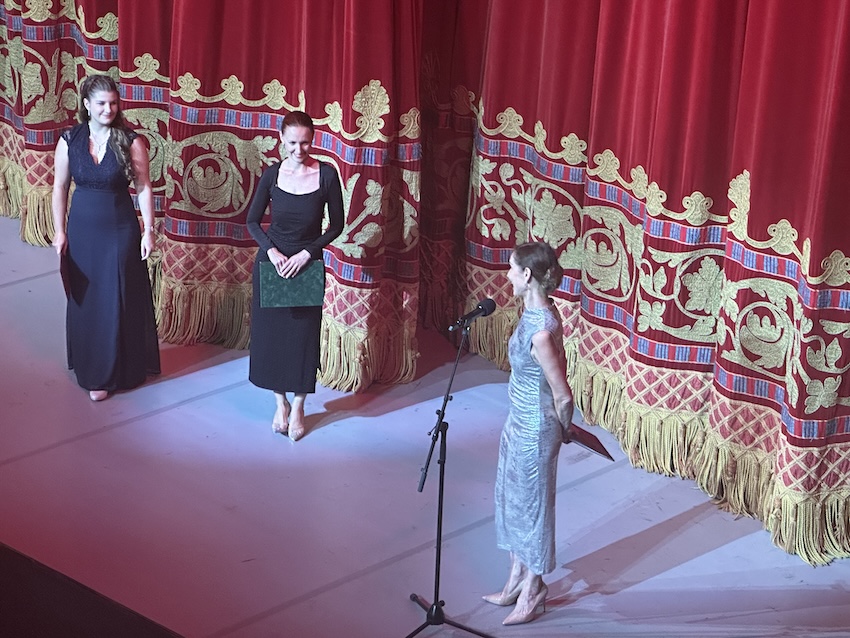
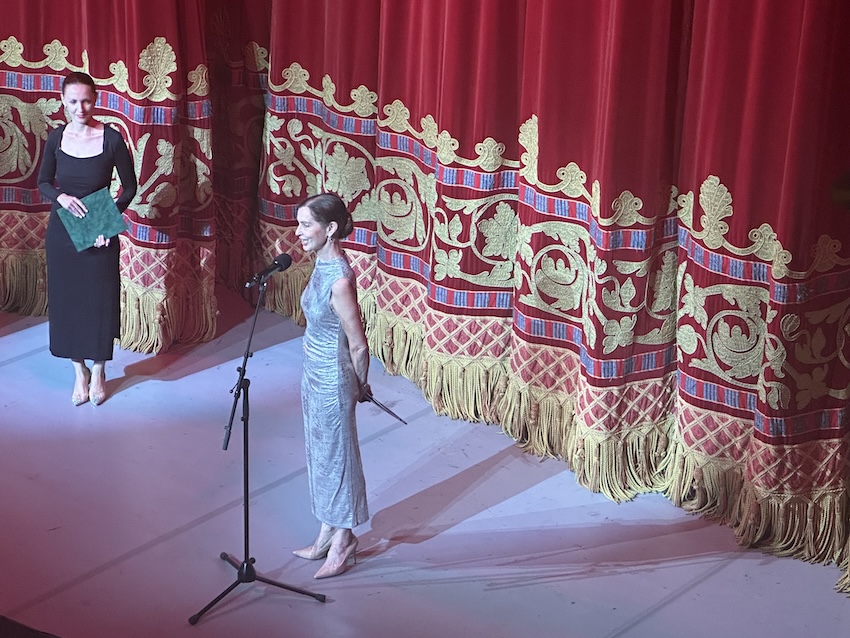
Graduation Performance
The evening’s three-act programme showcased the university’s broad, multidisciplinary approach to dance education – honouring tradition, embracing innovation, and encouraging individual expression. Alongside the graduating students, pupils from the 5th to 8th years of the Classical Ballet specialization also took the stage.
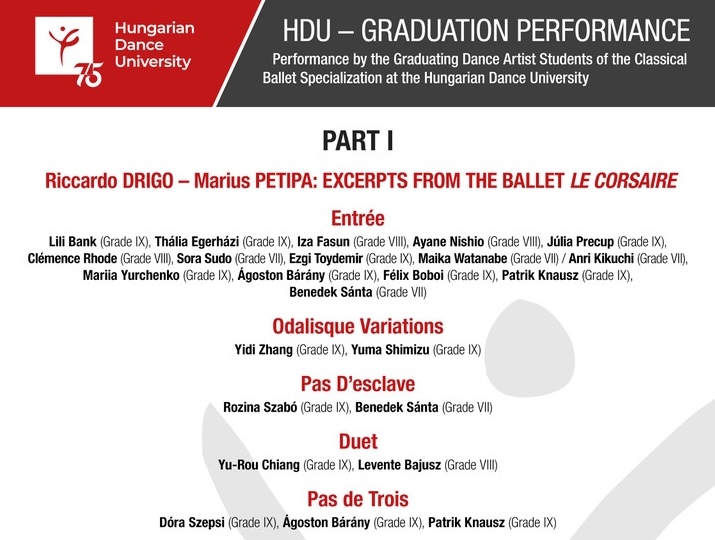
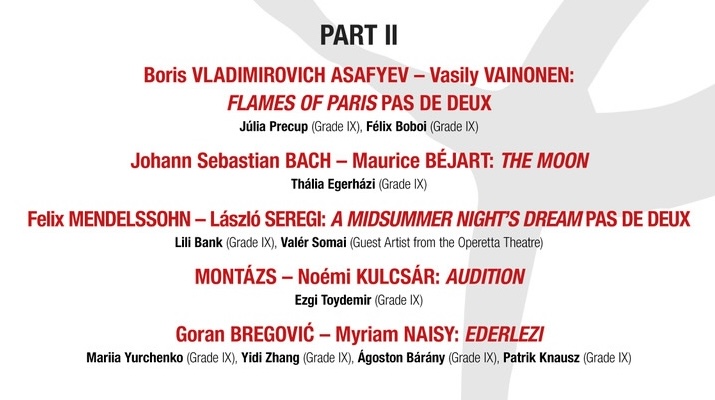
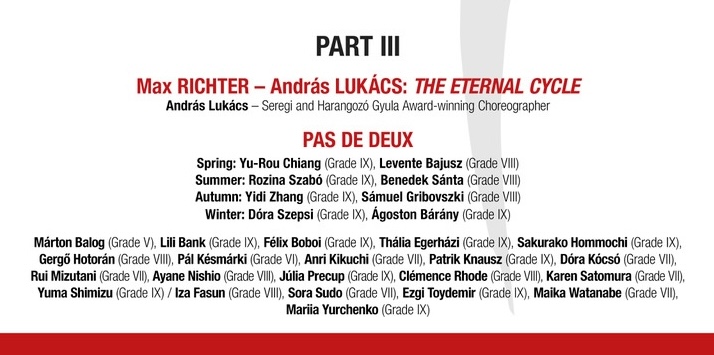
The graduation gala traditionally opens with a classical piece, and this year was no exception. Excerpts from the ballet Le Corsaire (French for The Pirate) – choreographed by Marius Petipa, were performed to music by Riccardo Drigo. The stage evoked a quiet palace courtyard, brought to life by the dancers’ poised and precise movements. Their performance embodied the refined discipline expected of classical ballet – while subtly hinting at the personal voices to be revealed in the acts that followed.









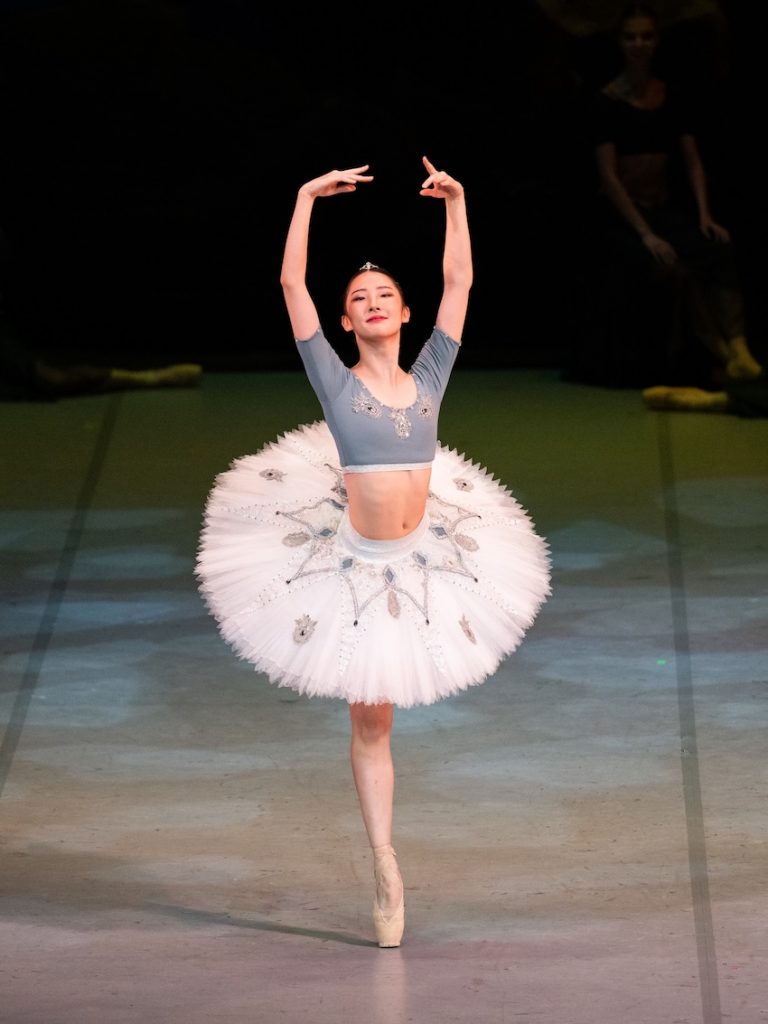
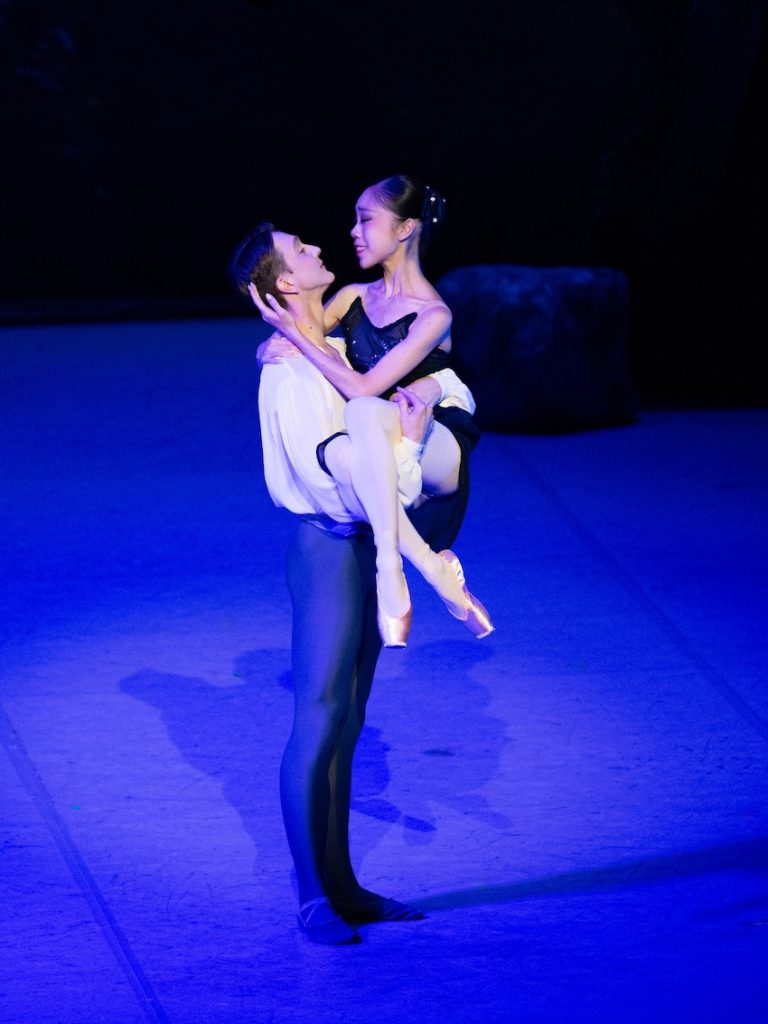
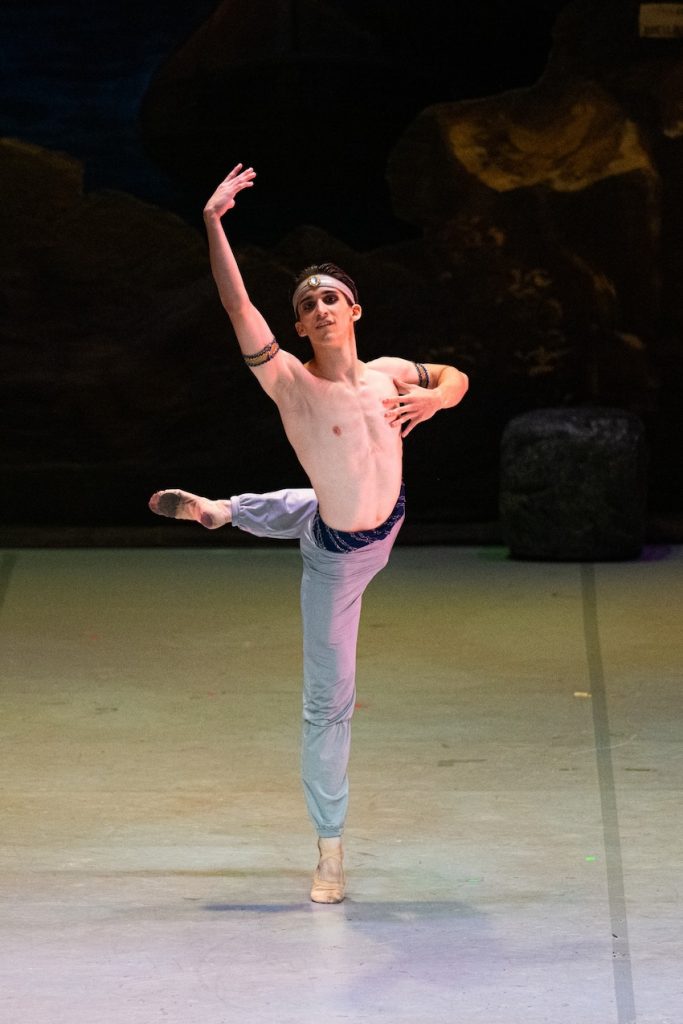









The second act shifted tone, embracing diversity and introspection. Tailored to the unique temperament and strengths of each student, these choreographies fused classical and contemporary vocabularies, transforming personal stories into expressive movements. The result was a deeply emotional sequence of solos and ensemble works that drew the audience into the inner worlds of the performers.



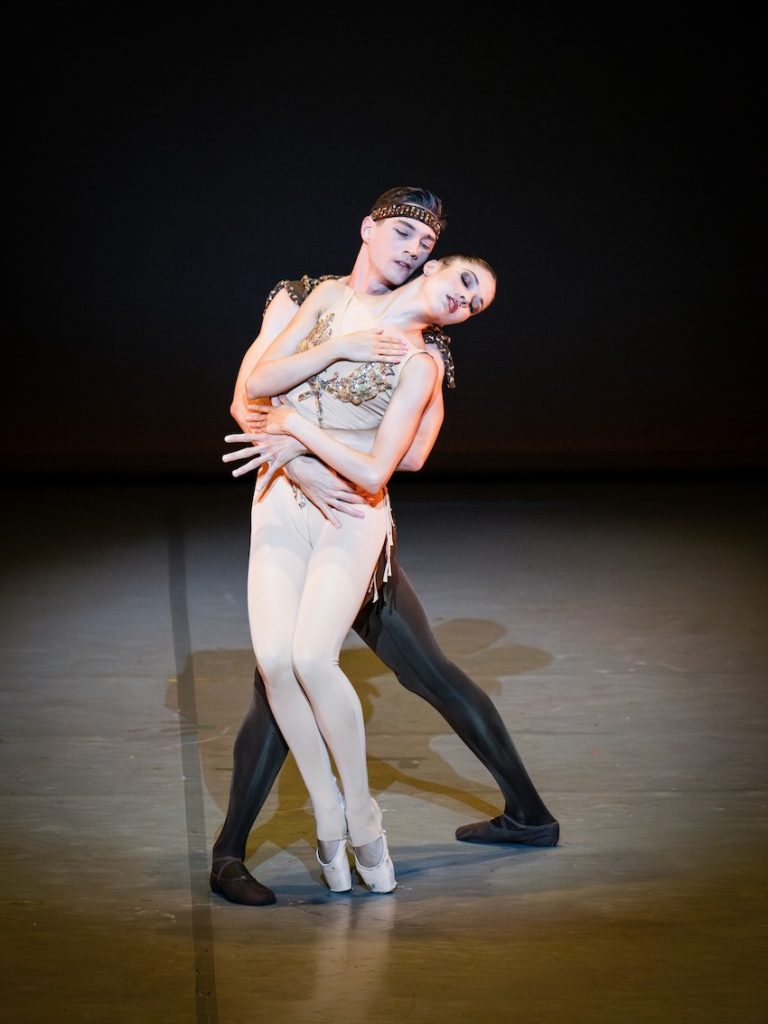
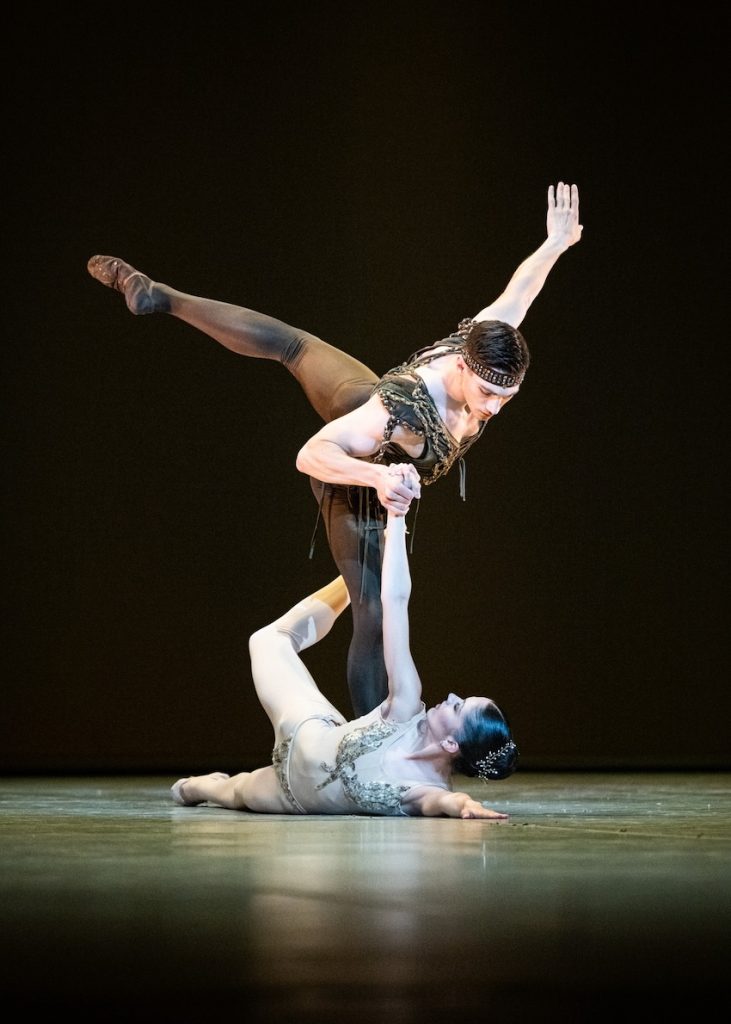
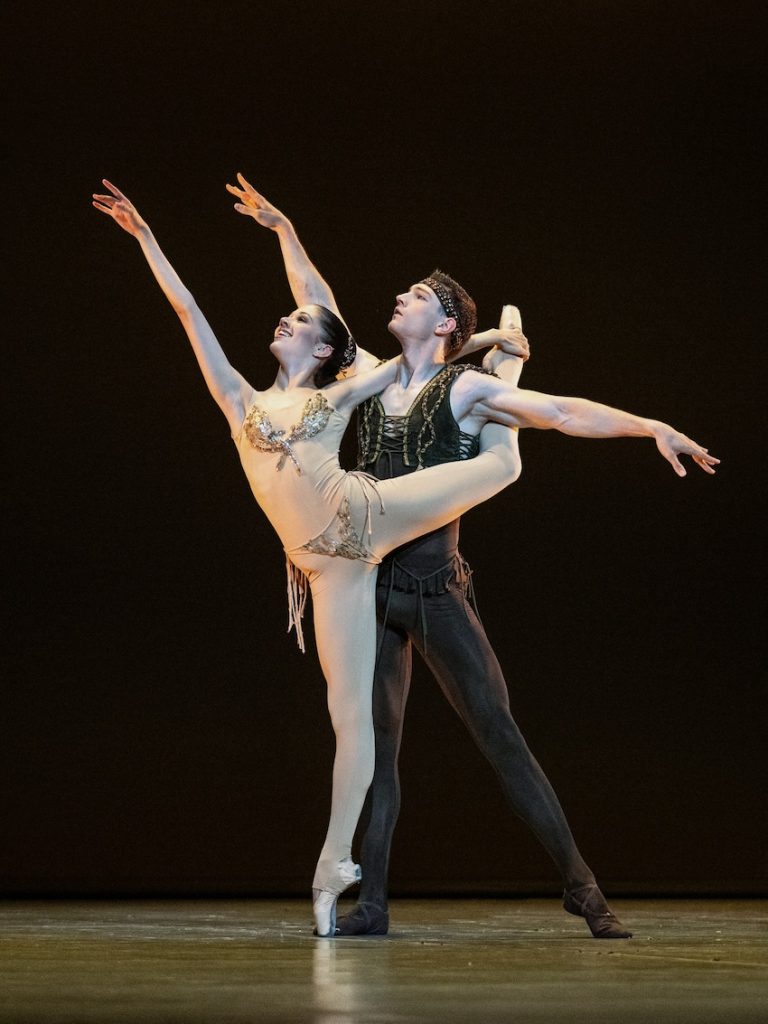









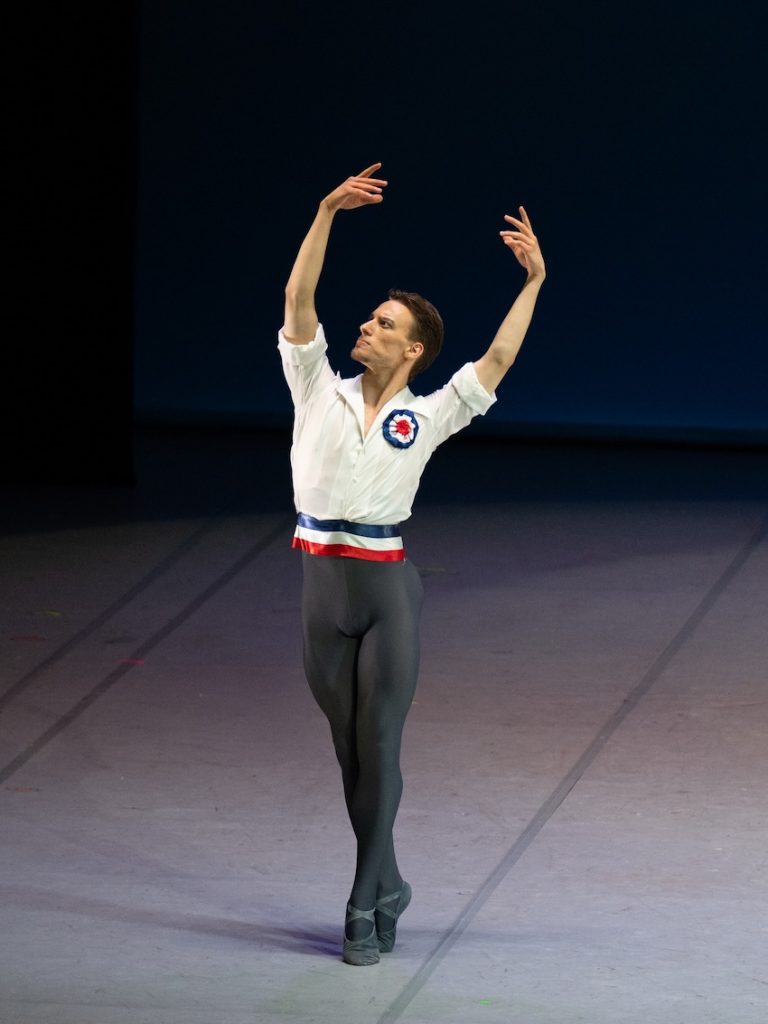
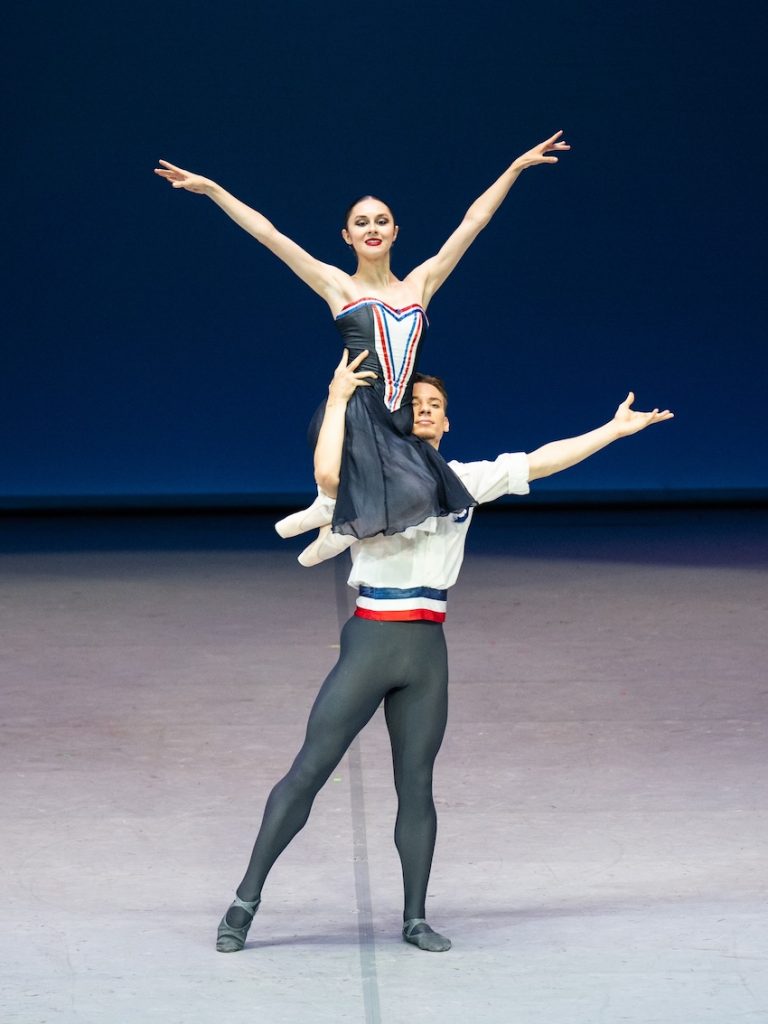
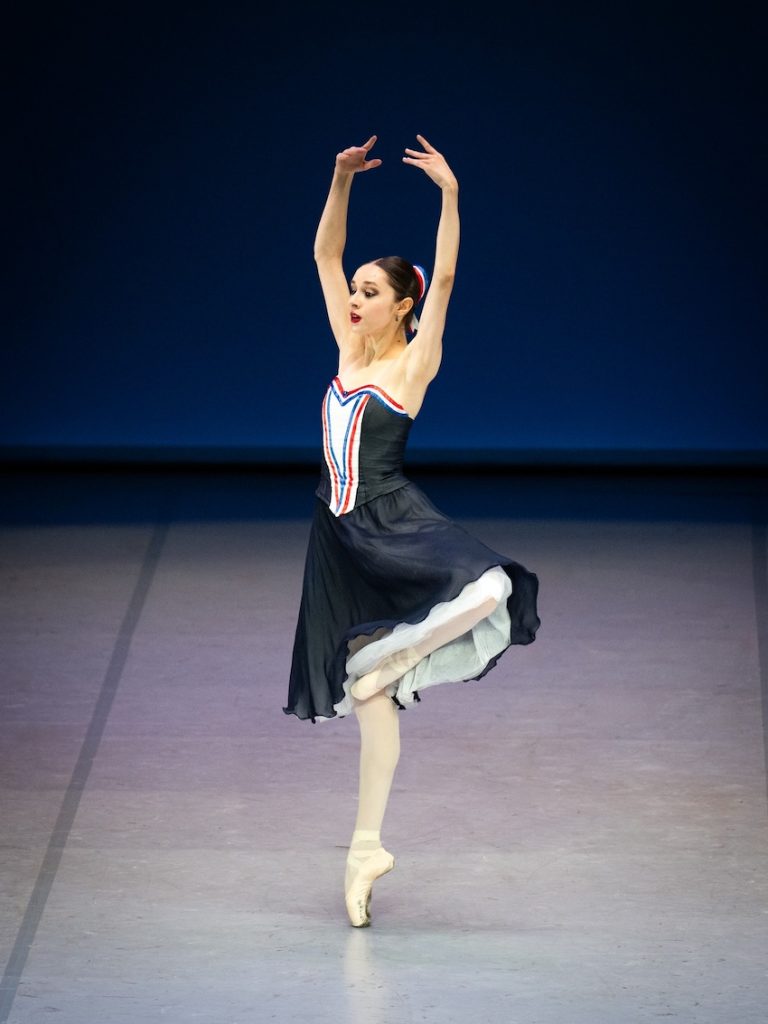

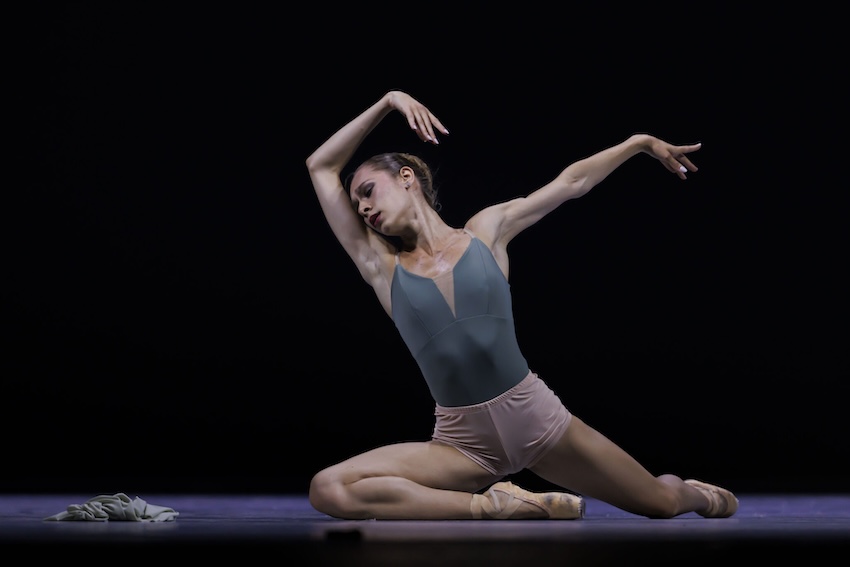
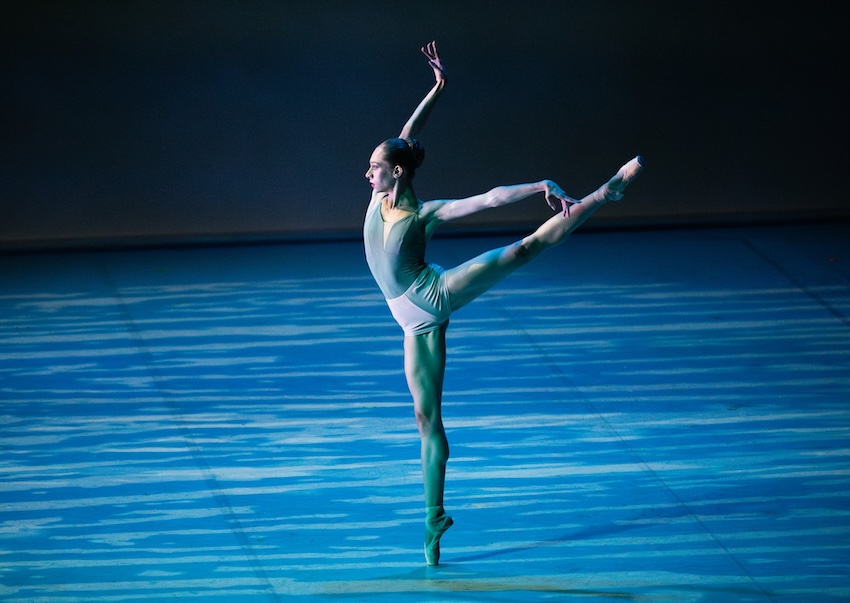
The artistic peak of the evening arrived in the final act with the world premiere of “Eternal Cycle” (Örök körforgás), choreographed specifically for this class by András Lukács, Harangozó Gyula Award-winning Hungarian artist, to the music of Max Richter. Developed over a year and a half – thanks to the initiative of Katalin Volf – the piece bore Lukács’s signature style: fluid, organic, and poetically precise. The dancers formed a web of shared strength – fragile yet resilient – building toward a cathartic crescendo that left the audience breathless.








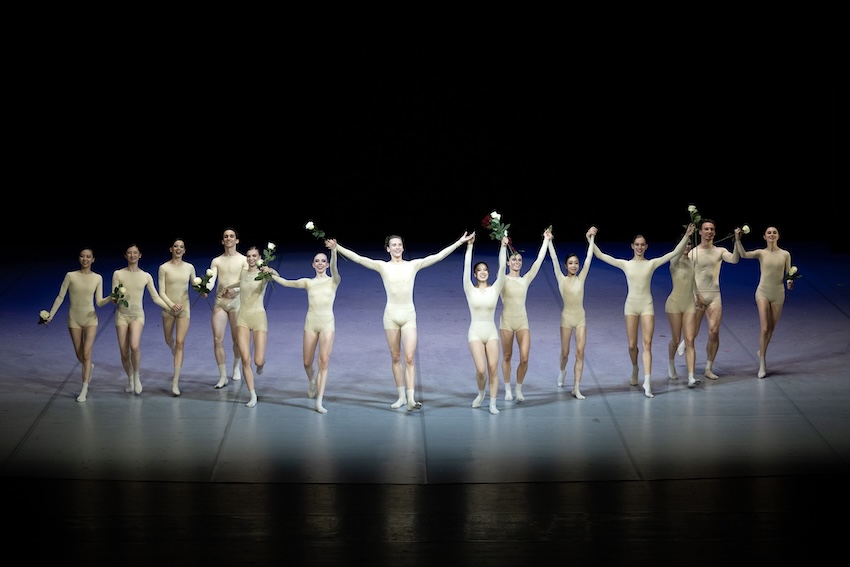
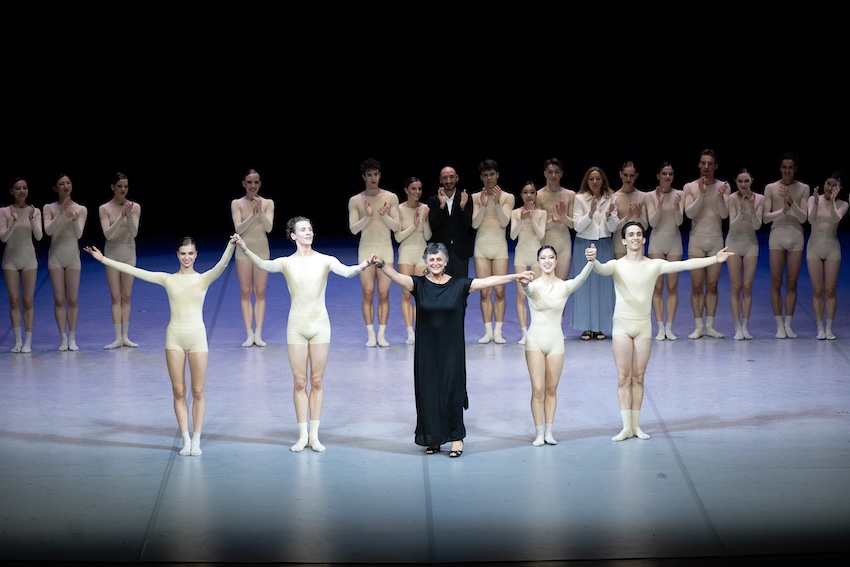
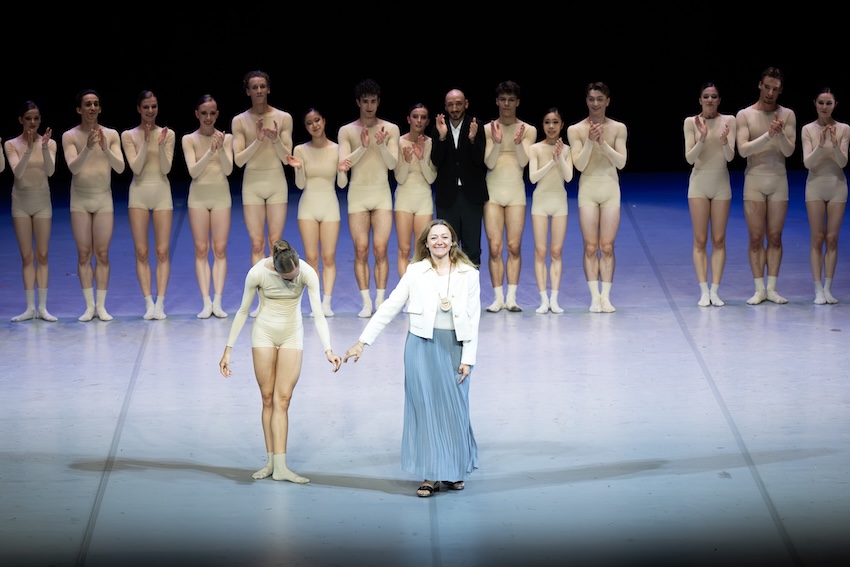

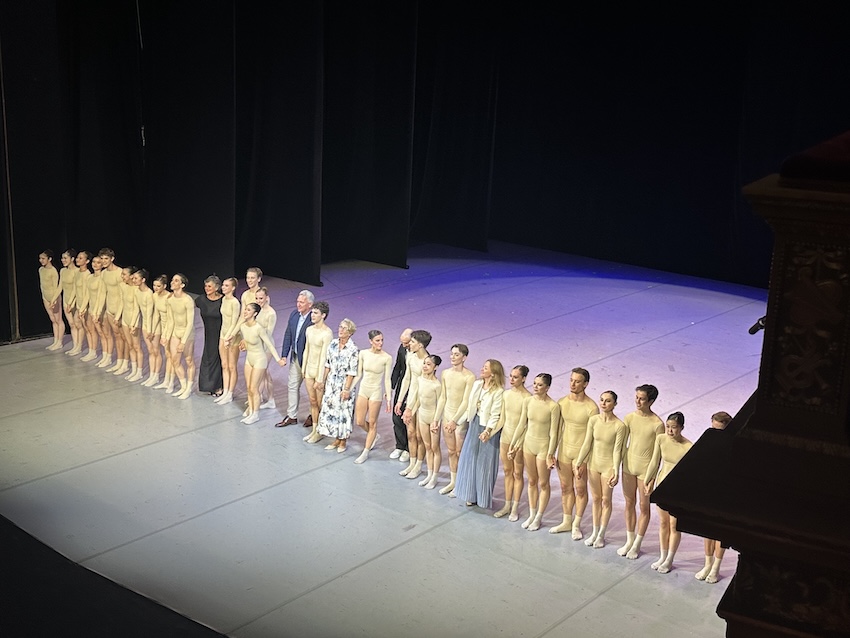
“A classical ballet class has never done anything like this before!” – said one enchanted member of the audience.
A Milestone in Motion
Though technically demanding, the performance surpassed all expectations. Even the faculty was surprised by the class’s artistic maturity, cohesion, and emotional depth. The audience responded with long, thunderous applause – an ovation for the dancers’ perseverance, creativity, and humanity. Rarely does a final exam leave such a lasting and unified impression.
Reflecting on the performance, Katalin Volf, Kossuth Prize-winning artist and co-class leader shared: “This was more than a professional exam – it was a profound human challenge for them. From here on, their journey continues across the world.”
Indeed, more than two-thirds of the graduating students have already secured contracts with professional ballet companies abroad. Their next stages – literally – will be international.
The artistic concept of the gala was developed jointly by Katalin Volf and Sándor Túri, university associate professor and class leader. Determined to give each student equal visibility, the two choreographers resisted the urge to spotlight individuals. Their careful balance resulted in a performance that radiated both individual brilliance and collective strength.
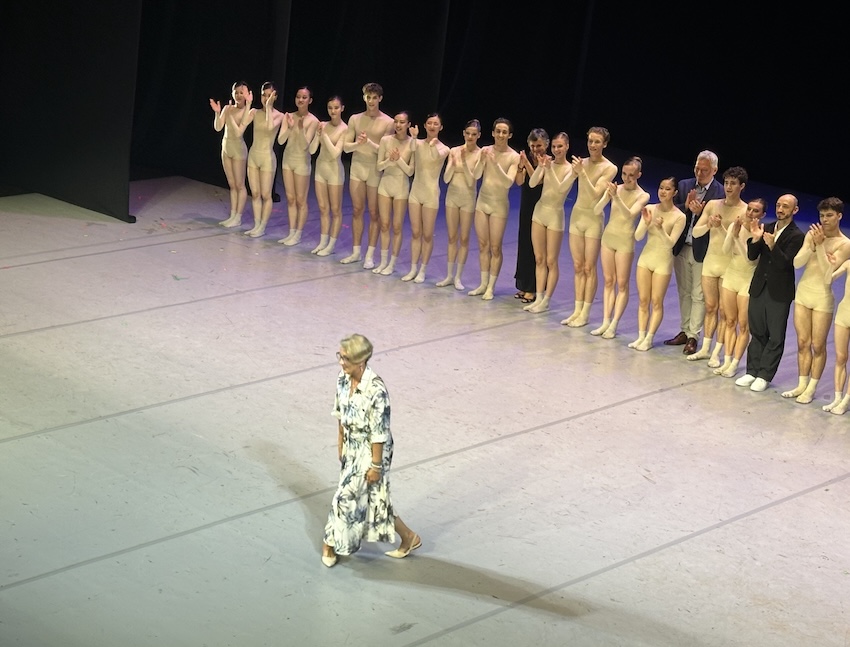
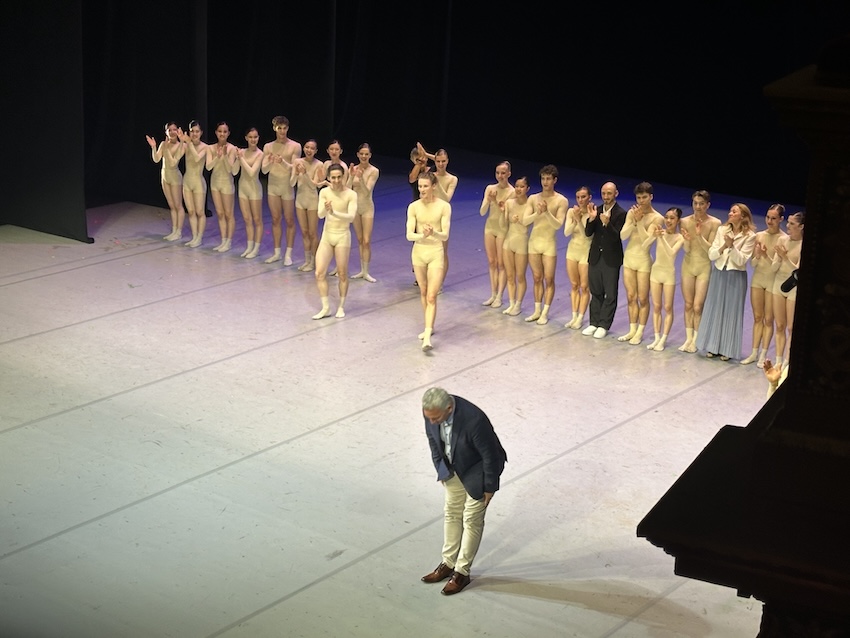
As the curtain fell, the graduating dancers embraced each other, fully aware that their shared journey had come to an end. Katalin Volf spoke candidly about the transition: “This is the hardest exam because it truly matters – not just professionally, but also as a human challenge. Now they must walk their own paths and take their own hits. All I can do is be here, love them, and offer a shoulder to cry on.”
This graduation gala was far more than a final performance – it was a heartfelt farewell and the beginning of a bold new chapter. These young dancers now carry with them the legacy of the Hungarian Dance University and the memories of a transformative evening in which the stage became a bridge between past, present, and future.
Graduating Class of International Students 2025
Lili Bank, Ágoston Bárány, Felix Boboi, Chiang Yu-Rou, Thália Egerházi, Toydemír Ezgi, Ishii Ryo, Patrik Knausz, Mariia Yurchenko, Júlia Precup, Sakurako Honmochi, Shimizu Yuma, Rozina Szabó, Dóra Szepsi, Zhang Yi Di.




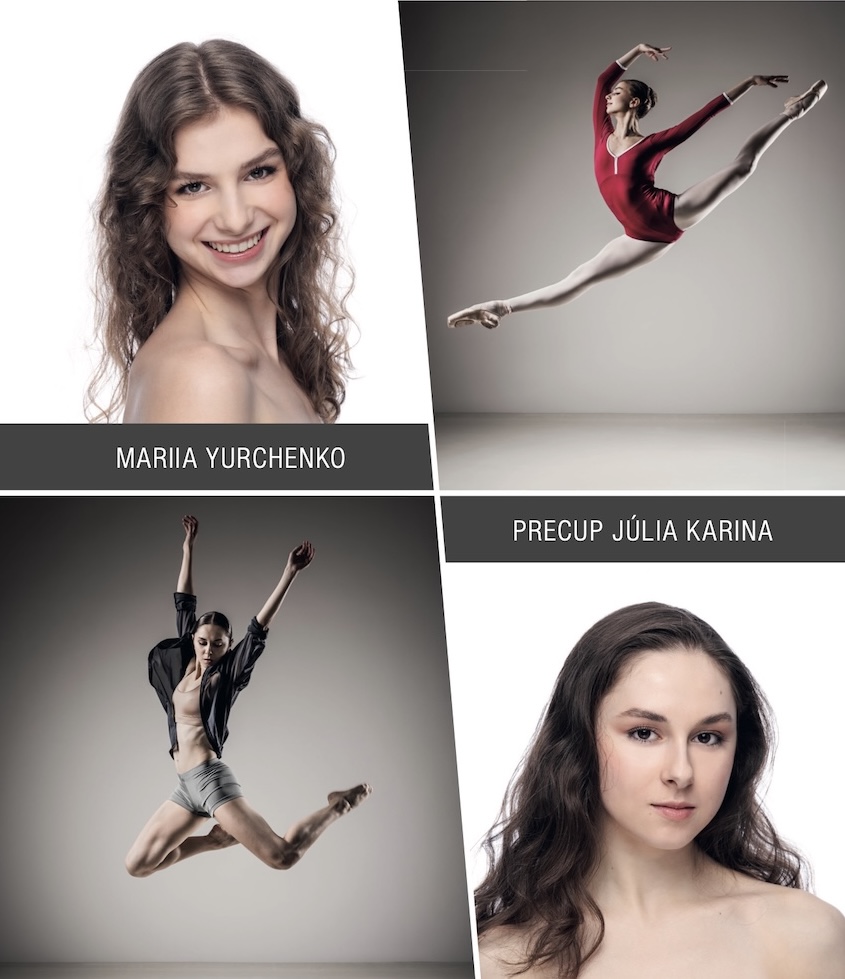




Class Leaders and Curators of the Graduation Program:
- Katalin Volf – Kossuth and Ferenc Liszt Prize-winning ballet artist, Meritorious Artist, university professor, class leader, and Master Artist of the Hungarian State Opera, where she holds the title of Lifetime Honorary Member,
- Sándor Túri – Harangozó Prize-winning dancer, university associate professor, and class-leading ballet master.
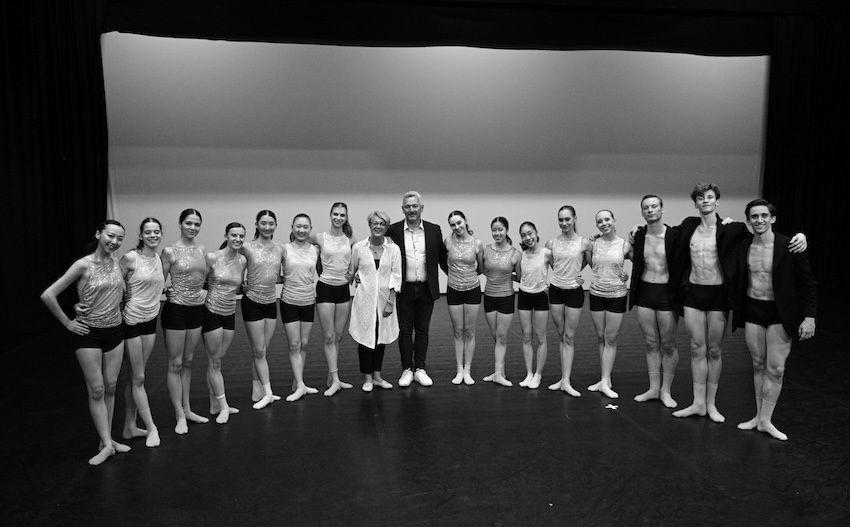
This unforgettable evening, which I had the honour and privilege to witness in person, left a lasting impression – not only through the dancers’ talent, but through the emotional power of their collective farewell.
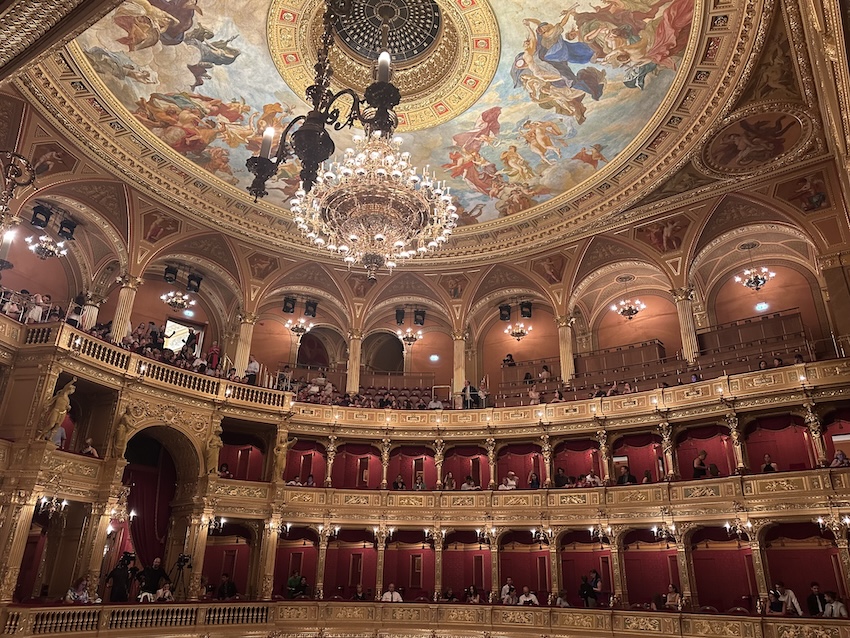
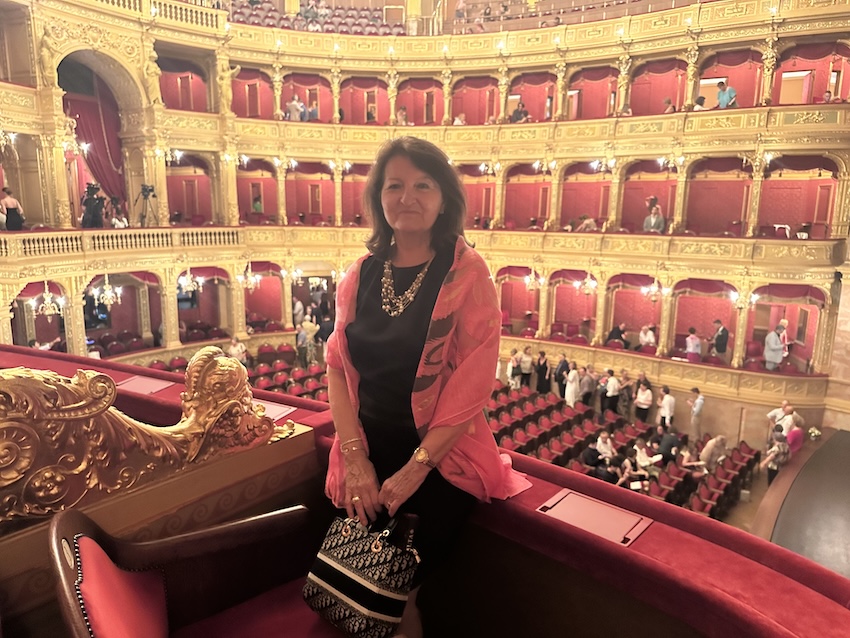
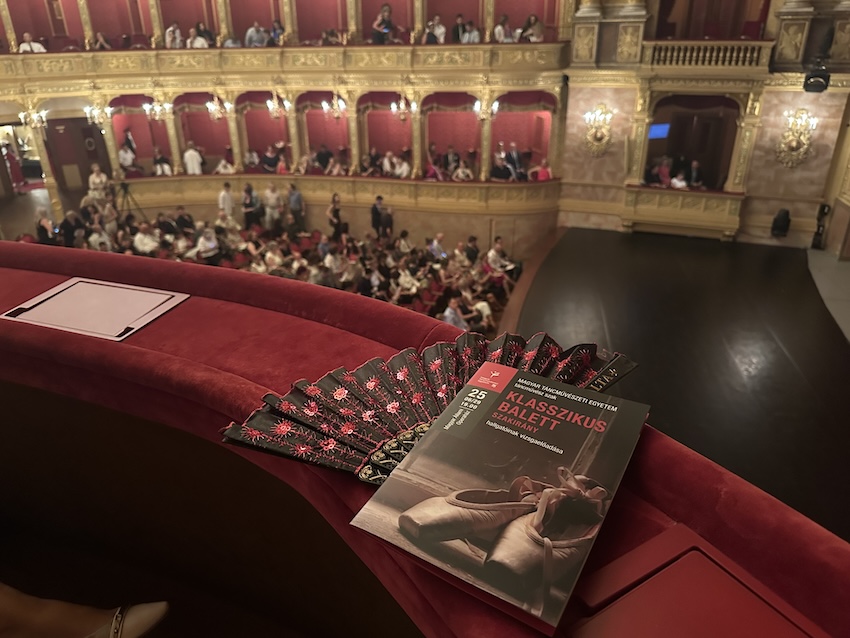
Next Generation Rising
In this anniversary year, the Hungarian Dance University also celebrates its most successful admissions period in 15 years, with a 15% increase in applications compared to the previous year. Following the 2025 admissions process, 220 students will begin their studies in September under the excellent conditions of this prestigious institution in Budapest.

Source: Hungarian Dance University
Photos by Adrienne Horváth – Hungarian Dance University, Pál Csillag and DPA
More information: www.mte.eu


